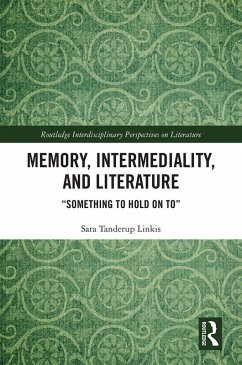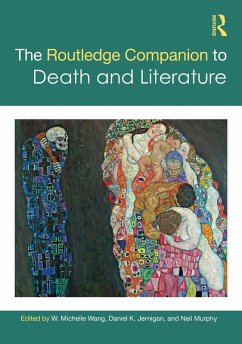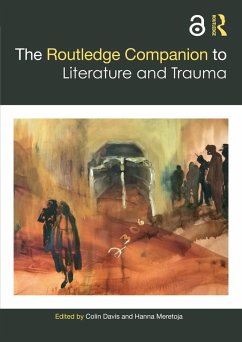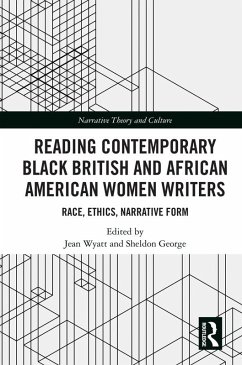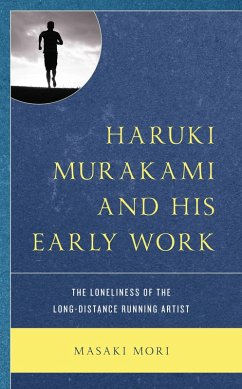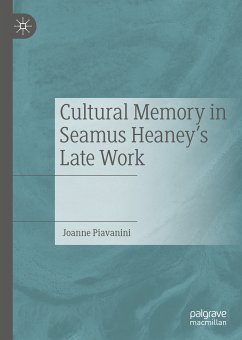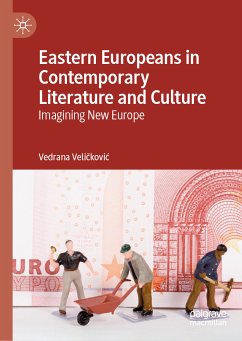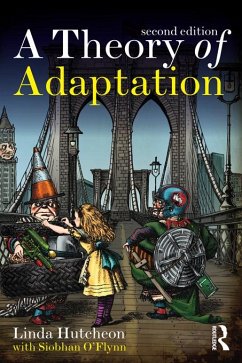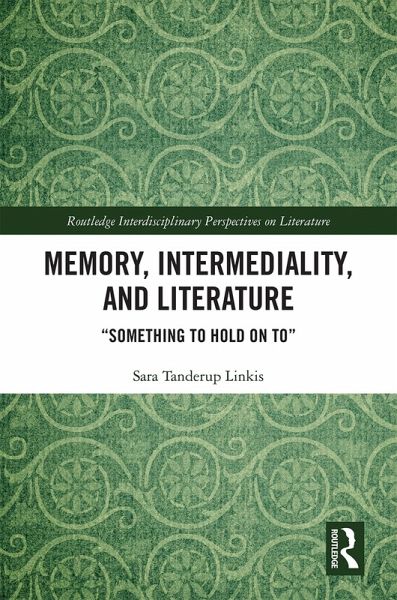
Memory, Intermediality, and Literature (eBook, PDF)
Something to Hold on to
Versandkostenfrei!
Sofort per Download lieferbar
42,95 €
inkl. MwSt.
Weitere Ausgaben:

PAYBACK Punkte
21 °P sammeln!
"If readers of Sara Tanderup Linkis' "Something to hold on to ..." open the book in the expectation of entering a niche of literature and literary studies, they will leave it after having encountered a new highway in literature. Here, the traditional theme of memory and the most recent use of digital media merge into a new understanding of the role of the book in the contemporary media landscape and of vicissitudes of memorial processes literature, which also offers a broader perspective on literature in human history. Spurred by Sara Tanderup Linkis' sharp eye the readings of texts are lucid,...
"If readers of Sara Tanderup Linkis' "Something to hold on to ..." open the book in the expectation of entering a niche of literature and literary studies, they will leave it after having encountered a new highway in literature. Here, the traditional theme of memory and the most recent use of digital media merge into a new understanding of the role of the book in the contemporary media landscape and of vicissitudes of memorial processes literature, which also offers a broader perspective on literature in human history. Spurred by Sara Tanderup Linkis' sharp eye the readings of texts are lucid, engaging and offers so many ideas that teachers will renew their curricula, and readers will open the internet for more or rush to the library."
- Svend Erik Larsen, professor emeritus
Memory, Intermediality, and Literature investigates how selected literary works use intermedial strategies to represent and perform cultural memory. Drawing on the theoretical perspectives of cultural memory studies, this engaging, reader-friendly monograph examines new materialism and intermediality studies, analyzying works by Alexander Kluge, W.G. Sebald, Jonathan Safran Foer, Anne Carson, Mette Hegnhøj, William Joyce, J.J. Abrams and Doug Dorst. The works emerge out of different traditions and genres, ranging from neo-avant-garde montages through photo-novels and book objects to apps and children's stories.
In this new monograph, Sara Tanderup Linkis presents an interdisciplinary and comparative approach, reading the works together, across genres and decades, and combining the perspectives of memory studies and materialist and media-oriented analysis. This approach makes it possible to argue that the works not only use intermedial strategies to represent memory, but also to remember literature, reflecting on the changing status and function of literature as a mediator of cultural memory in the age of new media. Thus, the works may be read as reactions to modern media culture, suggesting the ways in which literature and memory are affected by new media and technologies - photography and television as well as iPads and social media.
- Svend Erik Larsen, professor emeritus
Memory, Intermediality, and Literature investigates how selected literary works use intermedial strategies to represent and perform cultural memory. Drawing on the theoretical perspectives of cultural memory studies, this engaging, reader-friendly monograph examines new materialism and intermediality studies, analyzying works by Alexander Kluge, W.G. Sebald, Jonathan Safran Foer, Anne Carson, Mette Hegnhøj, William Joyce, J.J. Abrams and Doug Dorst. The works emerge out of different traditions and genres, ranging from neo-avant-garde montages through photo-novels and book objects to apps and children's stories.
In this new monograph, Sara Tanderup Linkis presents an interdisciplinary and comparative approach, reading the works together, across genres and decades, and combining the perspectives of memory studies and materialist and media-oriented analysis. This approach makes it possible to argue that the works not only use intermedial strategies to represent memory, but also to remember literature, reflecting on the changing status and function of literature as a mediator of cultural memory in the age of new media. Thus, the works may be read as reactions to modern media culture, suggesting the ways in which literature and memory are affected by new media and technologies - photography and television as well as iPads and social media.
Dieser Download kann aus rechtlichen Gründen nur mit Rechnungsadresse in A, B, BG, CY, CZ, D, DK, EW, E, FIN, F, GR, HR, H, IRL, I, LT, L, LR, M, NL, PL, P, R, S, SLO, SK ausgeliefert werden.




